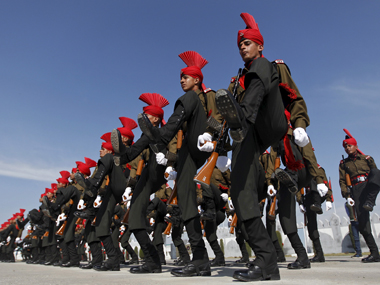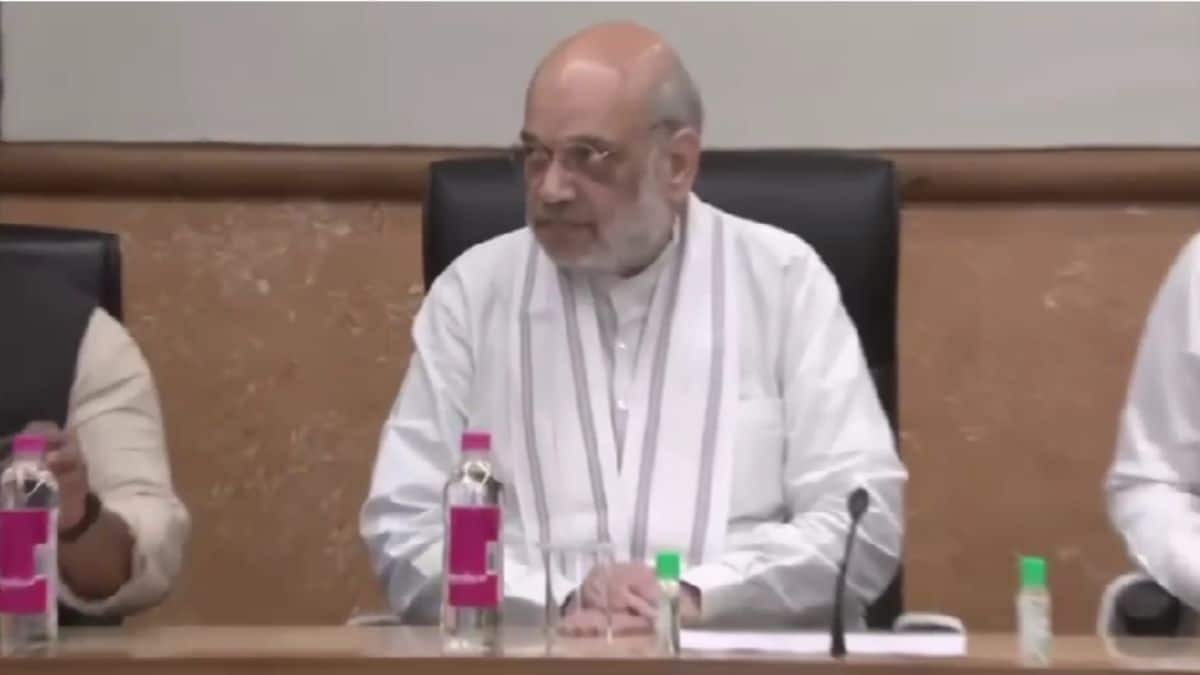The recent acceptance for implementation of certain recommendations made by the Lieutenant-General DB Shekatkar Committee, set up last year to suggest ways and means to enhance the combat potential of the armed forces and re-balancing defence expenditure, has been a subject of much discussion in the strategic community and the media. While the committee’s report remains the property of the government, which retains prerogative regarding implementation of recommendations, there have been comments and observations made regarding its approach and work that indicate a need for clarity on the principles and rationale that underlay its approach to its task, as also its recommendations. Addressing military commanders aboard INS Vikramaditya in December 2015, Prime Minister Narendra Modi had advised them to reform their ‘beliefs, doctrines, objectives and strategies’, emphasising that “at a time when major powers are reducing their forces and rely more on technology, we are still constantly seeking to expand the size of our forces. Modernisation and expansion of forces at the same time is a difficult and unnecessary goal. We need forces that are agile, mobile and driven by technology, not just human valour”. [caption id=“attachment_3907241” align=“alignleft” width=“380”] Representational image. Reuters[/caption] Some of the areas the prime minister mentioned where reform was necessary are those of defence planning, enhanced jointness (interoperability of the army, navy and air force), rationalisation of manpower, professional military education, restructuring higher defence management and reforming the defence procurement process. These in turn became the committee’s ‘guiding principles’ for its deliberations. The committee was also guided by the concept of ‘strategic space’ of India’s interest,
as defined on the Ministry of Defence website: _"_India’s size, strategic location, trade interests in a security environment that extends from Persian Gulf in the West, to the Straits of Malacca in the East and from the Central Asian Republic (CAR) in the North to near the equator in the South, underpin India’s security response. In view of the strategic spread, it is essential for the country to maintain a credible land, air and maritime force to safeguard its security interests." Against this backdrop, the committee’s approach to some of the major aspects it deliberated (among many others), needs to be outlined: For the armed forces to be in a perpetual state of dynamic readiness to meet the nation’s security requirements, it is necessary to first postulate its security objectives and to contextualise defence preparedness to meet these. The major security objectives upon which the committee focussed, besides the defence of the nation’s borders, were protecting its citizens against wars, terrorism, insurgency, nuclear threats and militant activities, being a net security provider in the Indian Ocean Region, and developing of equipment and technologies that enhance defence preparedness through indigenous research, development and production. To achieve these objectives, the committee drew up ‘military’ objectives, that are the prevention of war through deterrence, prosecution or military operations to achieve stated/implied political objective(s), provision of Humanitarian Assistance and Disaster Relief (HADR) when called upon to do so. A factor added by the committee to this ’traditional’ list was the attainment of a degree of technological and strategic independence. Likewise, the spectrum of threats for which the nation must prepare, besides the collusive and collaborative threats from its two major adversaries were broadened to include technological threats such as cyber, space and information warfare besides non-contact or non-conventional threats and security in the maritime domain such as India’s maritime geography, its maritime trade, its maritime relations, investments and interests and the prospect of maritime terrorism. The beacon in the latter context is the vision of SAGAR – Security and Growth for All in the Region. In terms of the ’teeth-to-tail’ ratio, the committee broke the shackles of these being defined only in the context of the three armed forces. It recognised the need to critically examine anyone and everyone sustained out of the Defence Budget and that an appropriate teeth-to-tail ratio is one for the entire defence mechanism sustained out of Defence Budget of India which, besides the armed forces, includes the organisations that function under the MoD such as the DRDO, OFB, DGQA, defence estates, CGDA, BRO, the defence PSUs and not least of all, the MoD itself. National resources being finite, and those available for execution of war at any one time limited, there is no gainsaying the imperative for a resource efficient strategy for strategic and operational planning to counter threats and for an appropriate force structuring to match the envisaged needs. The capabilities of the armed forces could be greatly enhanced if there is more jointness both in their training and in the execution of their tasks.
An integrated approach towards equipment selection, procurement, stocking and training would all accrue considerable financial savings. The existing functional arrangement of the services headquarters being attached offices of the MoD being out of sync with the needs of the time and stressed the imperative for an integrated MoD.
The committee examined took a comprehensive view of the utilisation of the Defence Budget. Its recommendations include keeping a minimum threshold of three percent of the GDP to ensure meeting the expenditures of growing operational requirements. It also suggested the setting up of a Defence Planning Board to monitor defence modernisation and budgeting which should be predicated on specific needs. The committee also suggested the adoption of a ‘roll on’ plan being explored that would ensure non-lapsability and more efficient uses of resources precluding the existing year end rush of expenditure. Resisting both the pressure and temptation to view manpower issues as a sieve of tradition bereft of historical vestiges and emotion has been perhaps the most uphill task of the Committee. Alongside, it was also apprehensive of the prospect that with greater sophistication of equipment, the Services would be in direct competition with the civil sector not only to meet the needs of skilled workforce, but also to retain its existing skill base and accordingly emphasised the need for common personnel policies; the Indian military presently being perhaps amongst the least ‘joint’ major militaries, an emphasis of both joint training as also joint education is a compelling need. There are several more recommendations the committee has made that are under consideration, an exercise that needs to be completed expeditiously if the ball park figure of aggregated savings as visualised by the committee are to be realised. The author is senior fellow at the Centre for Joint Warfare Studies and was a member of the Lieutenant-General Shekatkar Committee. Views expressed are his own.


)

)
)
)
)
)
)
)
)



